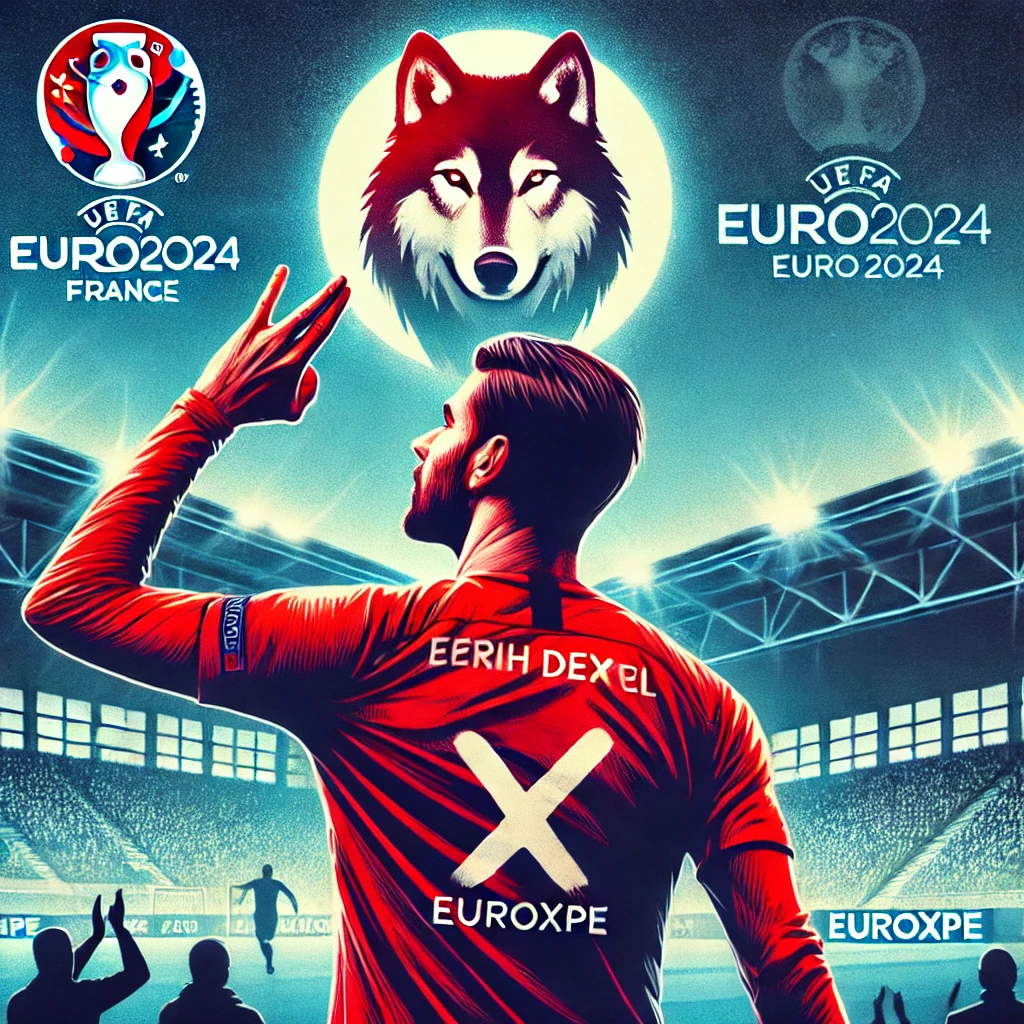UEFA has imposed a 2-match ban on Merih Demiral for his goal celebration in the match against Austria. This decision has reignited debates on the intersection of sports and politics in Europe.
During the EURO 2024 Round of 16 match against Austria, Turkey’s Merih Demiral celebrated his goals with a wolf salute. This gesture led to an investigation by UEFA, which concluded with a ban. UEFA stated, “The Turkish Football Federation player Merih Demiral is suspended for two (2) UEFA national team matches for violating general principles of conduct, breaching basic rules of decency, using sports events for non-sporting demonstrations, and damaging the reputation of football.”
However, this decision was prematurely reported by prominent German news agencies DW and Bild, suggesting Demiral was banned without a proper defence. This incident has highlighted significant issues within the administration of both Germany and EURO 2024. Germany’s Interior Minister Nancy Faeser also criticised Demiral’s celebration on social media, stating, “Turkish far-right symbols have no place in our stadiums” and urged UEFA to investigate the incident.
Renowned Turkish journalist Fatih Altaylı criticised UEFA’s decision. He remarked, “Despite the fact that Merih’s gesture did not offend any opponent or target any player, UEFA is ready to make an issue out of it while remaining silent on real racism on the pitch.” Altaylı pointed out that UEFA has been silent on incidents like the racial abuse faced by Real Madrid’s Vinicius in Spain, continuous insults towards African-origin players in England, and the institutionalised racism by some Italian club fans.
Historian Prof. Dr İlber Ortaylı commented on the historical significance of the wolf symbol, stating, “It is an important and meaningful symbol for the Turkish nation, with deep historical roots. It was also a symbol during the National Struggle, and Atatürk embraced the wolf symbol.” Ortaylı’s remarks underline the wolf salute’s national and historical importance. Moreover, many countries embrace animal symbols, and their athletes often use them. For instance, Germany’s uniforms feature the eagle, and France uses the rooster.
Right-wing parties have governed Turkey for over 45 years, and interest in Turkic identity has been increasing annually, particularly due to the influx of Arab populations from the Middle East. This growing interest in Turkic identity is reflected in YouTube videos where Italian and American vloggers react to Turkic music, enhancing global awareness of Turkish culture. Examples include videos like “Italian Reaction to Er Turan” and “INTENSE! Er Turan”.
Nevertheless, news outlets like Bild and DW misrepresent the wolf symbol, associating it with far-right parties in Turkey. Germany’s Interior Minister Nancy Faeser’s exploitation of this misrepresentation further illustrates the lack of thorough research and understanding before issuing reactions and penalties, highlighting the political and institutional unseriousness.
This incident underscores the importance of understanding the context of symbols used in sports arenas and how they are perceived. UEFA‘s decision has sparked a crucial debate about the balance between sports and politics. Will Europe continue to be divided, or will it learn from its mistakes?
Most EU countries, including Germany, refuse to acknowledge Israel’s genocide against Palestinians, raising concerns about the transparency and equality of the EU.







[…] Scandal: UEFA’s Controversial Decision on Merih Demiral Sparks Debate Shares: […]